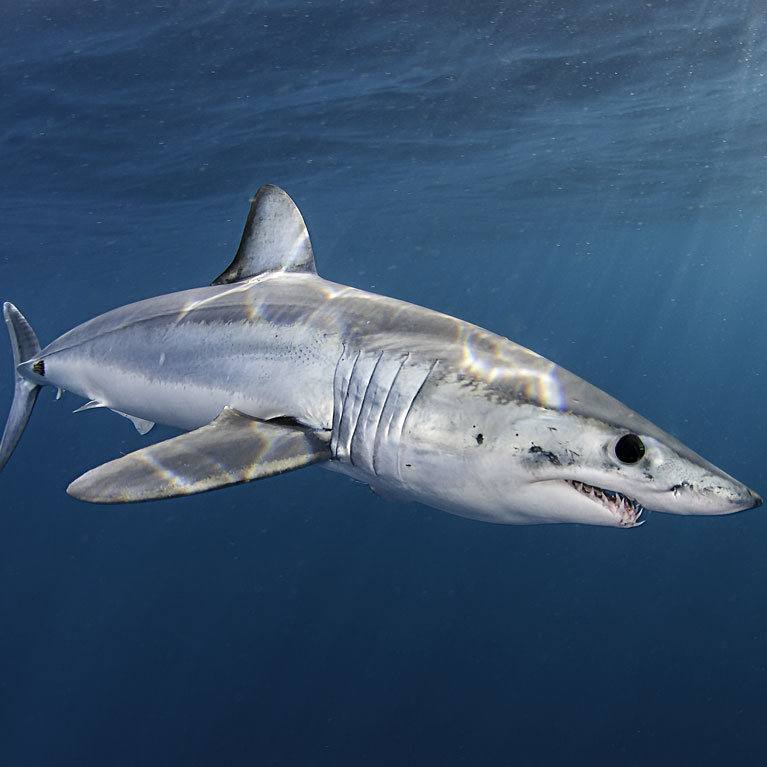Food security and the future for sharks
Ana is investigating the nutritional content of shark and ray meat products, an increasingly important protein source to many communities worldwide as fish populations fail. But if we don’t properly understand the value of and motivation for shark catches, we stand to mismanage both shark populations and the security of food in at-risk communities. Ana will quantify the content of seven nutrients that are essential to human health for the 20 most caught shark and ray species. Her project will identify the importance of sharks and rays in global food and nutritional security and suggest new ways to think about management and conservation strategies.
Born and raised in São Luís in north-eastern Brazil, I developed a fascination for sharks and rays at an early age while playing on beaches along the Brazilian coast. I completed a BSc in biological sciences and an MSc in biodiversity and conservation at the Universidade Federal do Maranhão, studying the supply chain and conservation status of sharks based on traditional fisher knowledge. Next, I pursued a PhD at James Cook University, Australia, where I integrated biotelemetry approaches and stable isotope analysis to refine the ecological roles of juvenile stingrays in coral reef ecosystems. I am now a postdoctoral...
Food security benefits of shark and ray nutrients
Our main objective is to quantify the nutrient content of the 20 most landed shark and ray species and better understand the role of sharks and rays in global food and economic security.
Demand for meat is the major driver of shark and ray overexploitation. Understanding the nutrient composition of shark and ray meat is important for improved nutritional security and also crucial for the development of effective management and conservation strategies. This project will foster new dimensions of shark conservation relating to global food security by quantifying the content of essential nutrients and identifying the global importance of sharks and rays for both food and economic security.
Sharks and rays are an important source of protein for coastal communities worldwide. Although the consumption of shark and ray meat is historically common around the globe, regulations encouraging the full utilisation of sharks, an increase in the demand for protein sources and the decline of valuable teleost fisheries have led to an expansion of global shark and ray meat markets and to a worrying decrease in several populations. Unfortunately there is little information about the nutrient composition of shark and ray meat and its contribution to food and economic security, which limits our ability to gain a proper understanding of the motivation for catching and consuming elasmobranchs.
Understanding the nutrients in shark and ray meat can lead to improved nutrition, especially in socio-economically disadvantaged coastal communities. It is also critical for the development of effective management and conservation strategies, as meat consumption is the major driver of shark and ray overexploitation. Conversely, not understanding the nutrient composition and the role of sharks and rays in food and nutritional security could lead to poor decision making and floundering conservation efforts. In revealing the nutritional importance of sharks, this project will foster new dimensions of shark conservation relating to global food security.
- To quantify the content of seven essential nutrients to human health for the 20 most consumed shark and ray species.
- To estimate how environmental and ecological traits predict the nutrient content of shark and ray species by applying Bayesian hierarchical models.
- To identify the role of sharks and rays in global food and nutritional security, as well as the economic need for shark and ray meat, to inform new management and conservation strategies.


